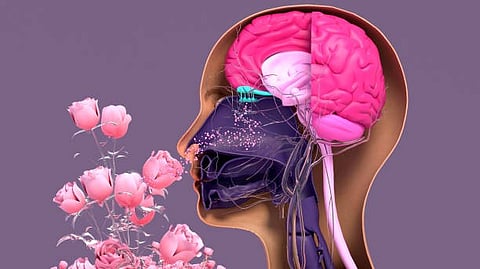This discovery opens doors for:
Advanced olfactory training and therapy
Innovative electronic nose and virtual reality technologies
A deeper understanding of the human sense of smell.
By exploring the nuances of human smell, scientists can unlock new avenues for sensory research and applications. As our understanding of this complex sense evolves, we may uncover even more surprising capabilities. The implications of this research are significant. Advanced olfactory training and therapy could benefit from this new understanding.
Additionally, the development of electronic noses and virtual reality technologies may be informed by these findings. The results showed that humans can detect subtle changes in odor sequences, even when separated by incredibly short intervals. This discovery highlights the complexities of human perception.
(Input From Various Sources)
(Rehash/Neha Kamble/MSM)


